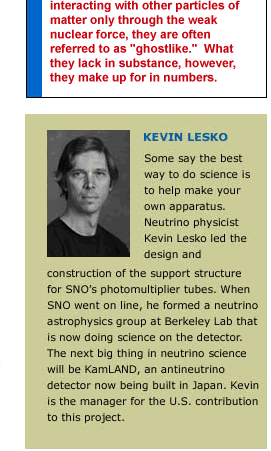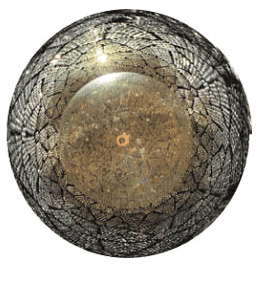 |
  he
sun produces more than two hundred trillion trillion neutrinos every second,
and this number pales to the output of a supernova.
Because of their copious quantity and transparent nature, neutrinos may hold the
answer to some of the most vexing questions of astronomy: Why does the
sun seem to produce far fewer neutrinos than our theories predict? Why
is most of the matter in the known universe "dark" or invisible
to our eyes? Where do cosmic rays come from? he
sun produces more than two hundred trillion trillion neutrinos every second,
and this number pales to the output of a supernova.
Because of their copious quantity and transparent nature, neutrinos may hold the
answer to some of the most vexing questions of astronomy: Why does the
sun seem to produce far fewer neutrinos than our theories predict? Why
is most of the matter in the known universe "dark" or invisible
to our eyes? Where do cosmic rays come from?
|




